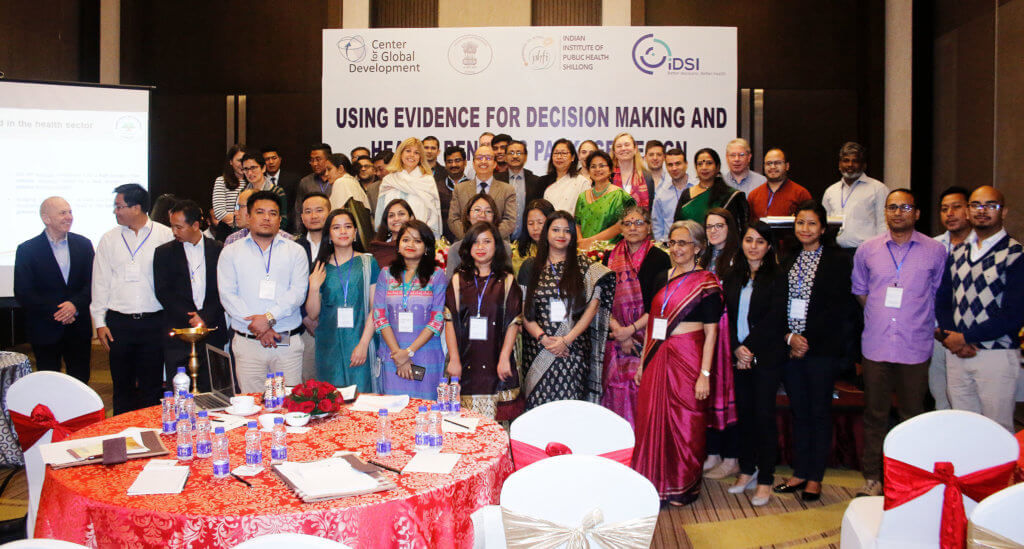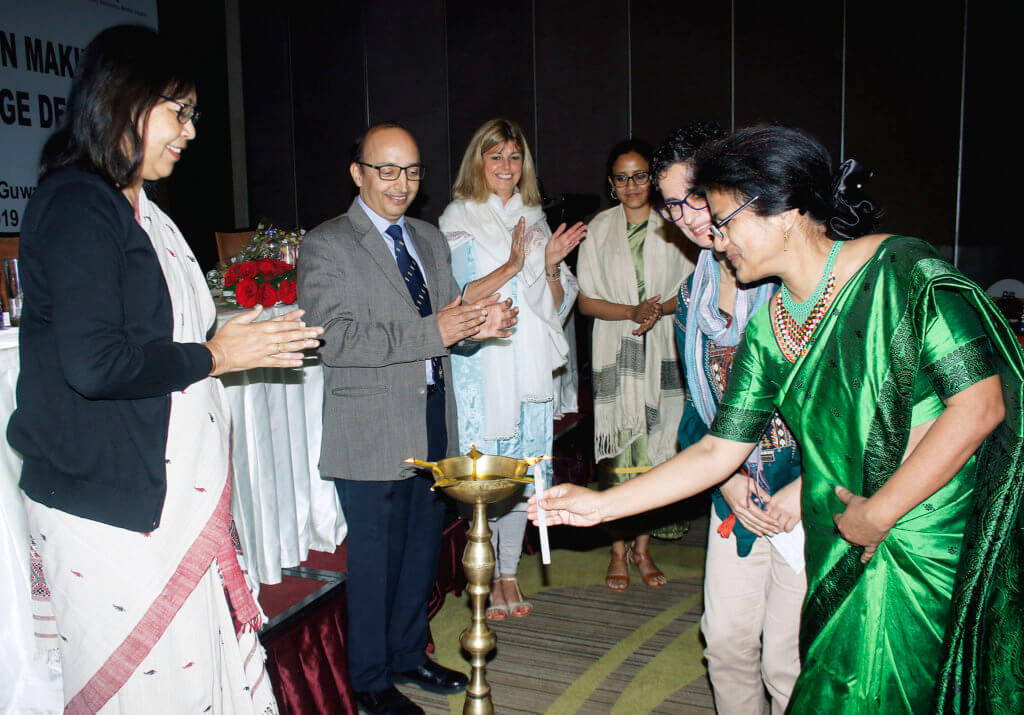International Workshop on Using Evidence for Decision-Making in Health Benefits Package Design
iDSI co-hosts major event, bringing together policy-makers from six North Eastern Indian States
As India moves towards the achievement of Universal Health Coverage (UHC), finding robust and evidence-based answers to the challenges of defining which services should be publicly funded, for whom and how, becomes increasingly important. The introduction of ‘Modicare’, the nascent health insurance scheme announced out by the Indian Federal Government to cover some 500 million citizens, brings with it a complex collection of challengers for State policy-makers to address. These include an urgent need to rationalise multiple insurance schemes, their benefits and their purchasing and contracting strategies; and enhance quality monitoring, to assure that public subsidies for health insurance are being well spent and maximising population health gains.

A workshop was held on 25 and 26 February 2019 in Guwahati, Assam, in the North East of India to address some of these pressing issues. The workshop was co-hosted by the Government of Meghalaya, the Indian Institute of Public Health Shillong and iDSI partners from the Center for Global Development and Imperial College London.

The two-day event was opened by Shri Samir Sinha, Principle Secretary Health, Government of Assam, and brought together over 50 participants from six of the North Eastern States. Delegates represented local government, and academic, non-government, and multi-lateral organisations such as the World Health Organization, The World Bank, Bill and Melinda Gates Foundation and UNICEF.
This international interactive workshop was the first event of its kind to be held in the North East of India and provides an important opportunity for iDSI to explore and strengthen collaborative engagement in this region; and for North Eastern States to showcase their proactive engagement towards health system strengthening.
The workshop sought to explore international best practices for defining and implementing successful Health Benefits Packages, highlight common pitfalls and share lessons for success – drawing from the iDSI publication ‘What’s in, what’s out: Designing Benefits for Universal Coverage’. Presentations and practical group work sessions provided some answers, options and choices in response to the important challenges that State governments are facing in relation to the refining of their own State Insurance Schemes and design of their health benefit packages.
A recent collaborative analysis of the Meghalaya Health Insurance Scheme (MHIS) by IIPH Shillong and Imperial College London was presented for the first time. This analysis tracked the scheme’s evolution and enhancement as the State progresses towards improving population health and highlighted key areas for development under the next phase of the MHIS.
Reflections from the workshop are summarised in this slideset.
Workshop materials
Presentations
Day 1
- Amanda Glassman, CGD: What’s In, What’s Out: Designing and Adjusting Health Benefits Plans for UHC
- Amanda Glassman & Kalipso Chalkidou, CGD: What is your HBP policy baseline?
- Amanda Glassman, CGD: Fiscal and budgetary issues for HBP
- Owen Smith, The World Bank: Using evidence to strengthen HBP implementation under PMJAY
- Sampath Kumar, IAS, Government of Meghalaya: The Meghalaya Community Participation and Public Services Social Audit Act, 2017
- Laura Downey, Imperial College London & Peter C. Smith, Imperial College London and University of York: Reviewing the health benefits package in Nelam Pradesh: methodology case study
- Peter C. Smith, Imperial College London and University of York: Methodological options for setting the health benefits package
Day 2
- Guwahati, National Health Authority: Governance under AB PMJAY
- Amanda Glassman, CGD & Ursula Giedion: Principles of good governance for a sustainable HBP policy
- Roshan Ronghang, IIPH Shillong: Assessing the pattern of enrolment and claims in Megha Health Insurance Scheme (MHIS)
- Anuj Gupte, MD India Health Insurance: HBP design and implementation overview
- Kikameren Longkumer, Department of Health and Family Welfare, Nagaland: Universal health coverage and health benefit package: Nagaland state
- Carleigh Krubiner, CGD: Navigating ethics in the design of health benefits. Evidence-informed practices to promote equitable and ethical progress on the path to UHC
- Prof Rama V. Baru, Jawaharial Nehru University: Equity and ethical considerations in health technology assessment
Group work case studies
- Case study: Reviewing the health benefits package in Nelam Pradesh
- Case study: Ensuring good governance in HBP design and implementation
- Case study: Examining ethics and equity dimensions in efforts to reduce maternal mortality
Press coverage
International conference on health finance – The Shillong Times, 9 March 2019